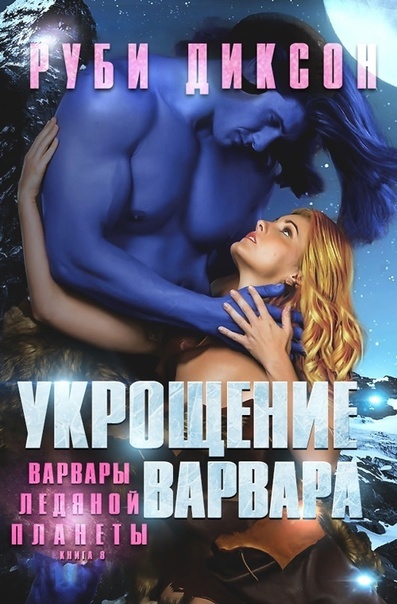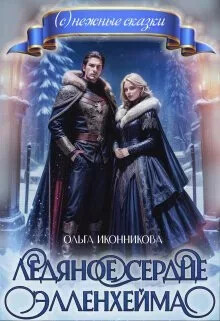Сборник статей - Россия и США: познавая друг друга. Сборник памяти академика Александра Александровича Фурсенко / Russia and the United States: perceiving each other. In Memory of the Academician Alexander A. Fursenko / Russia and the United States: perc
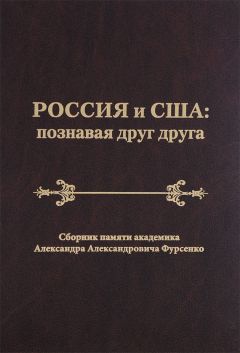
Помощь проекту
Россия и США: познавая друг друга. Сборник памяти академика Александра Александровича Фурсенко / Russia and the United States: perceiving each other. In Memory of the Academician Alexander A. Fursenko / Russia and the United States: perceiving each o... читать книгу онлайн
Россия и США: познавая друг друга. Сборник памяти академика Александра Александровича Фурсенко / Russia and the United States: perceiving each other. In Memory of the Academician Alexander A. Fursenko
Редакционная коллегия:
С. А. Исаев, В. В. Носков (отв. редактор), Н. А. Павличенко (отв. секретарь), В. Н. Плешков, William G. Rosenberg (American co-editor)
Рецензенты:
д. и. н. Е. В. Петров, д. и. н. А. И. Рупасов
© Коллектив авторов, 2015
© СПбИИ РАН, 2015
© Издательство «Нестор-История», 2015
* * *А. А. Фурсенко. Нью-Йорк, 1981. Фото Джейн Ломбард
Предисловие
Этот сборник статей и материалов посвящен памяти выдающегося российского историка Александра Александровича Фурсенко. Его тематика определяется основными научными направлениями, разработкой которых занимался он сам. А. А. Фурсенко имеет репутацию одного из крупнейших отечественных американистов, что полностью соответствует действительности. Однако и историей собственной страны он занимался не меньше, чем историей США, и с неменьшим увлечением, особенно на начальной и завершающей стадиях своей научной карьеры. Помимо этого, труды А. А. Фурсенко внесли огромный вклад в историографию истории международных отношений нового и новейшего времени, и прежде всего истории русско/советско-американских отношений. Тематикой сборника определяется и состав авторского коллектива. Его основу составили коллеги и ученики А. А. Фурсенко, принимавшие участие в подготовке сборника статей, который был издан в его честь в 2000 г. Теперь состав авторов пополнился также представителями более молодого поколения историков, к которым переходит эстафета в изучении тех проблем, разработке которых посвятил свою жизнь А. А. Фурсенко. Как и пятнадцать лет назад, авторский коллектив имеет интернациональный характер, поскольку творческое наследие А. А. Фурсенко начиная с его первых крупных работ получило признание не только в отечественной, но и в мировой, и в первую очередь американской историографии.
Сборник открывается небольшим мемориальным разделом. Коллеги А. А. Фурсенко вспоминают здесь лишь о нескольких эпизодах его насыщенной событиями биографии. Но эти драгоценные крупицы памяти складываются в очень яркую и многоцветную картину жизни и деятельности их старого товарища, помогая понять и эпоху, в которой он жил, и личность этого неординарного человека. Основной объем сборника занимают три тематических раздела, в которых сгруппированы статьи российских американистов по различным проблемам истории США и статьи американских русистов по истории России. В третьем тематическом разделе собраны статьи по истории русско-американских отношений, написанные как отечественными, так и зарубежными историками. Особое место в сборнике занимает статья нашего американского коллеги, посвященная проблемам социальной памяти. Далекая, казалось бы, от основной проблематики этого коллективного труда, она оказывается неожиданно актуальной, поскольку сам сборник служит хорошей иллюстрацией важности поднятых в этой статье проблем. Подобные сборники, издающиеся в честь ушедших из жизни коллег, сами по себе являются средством сохранения и трансляции социальной памяти и обретают благодаря этому важное общественное значение. Большой интерес представляют также впервые публикуемые здесь документы, принадлежащие перу А. А. Фурсенко. Это и личные письма, повествующие об обстоятельствах, при которых он впервые оказался в частном архиве семейства Рокфеллеров, и официальный отчет о пребывании в США двадцать лет спустя. Разные по жанру, эти документальные свидетельства позволяют нам еще глубже погрузиться в ту атмосферу, в которой жил и трудился А. А. Фурсенко. В приложении публикуются фотографии из личных архивов Н. Л. Фурсенко и В. В. Носкова.
Предлагаемый вниманию читателей сборник служит еще одним свидетельством той благодарной памяти, которую оставил о себе великий труженик и яркий во всех отношениях человек, Александр Александрович Фурсенко.
Preface
Alexander Alexandrovich Fursenko was a greatly admired colleague of all the contributors to this volume and many, many more, both within Russia and abroad. His interests were wide ranging, his energy prodigious, and his commitment to historical scholarship and its importance to understanding the contemporary world was as passionate as it was productive. For many of us from the “far abroad” who came to know him well over the years, he also mirrored our own interests in linking our different scholarly communities in collaboration, mutual respect, and friendship. Always welcoming, but always also tough minded, A. A. left a lasting mark on the Institute of History in St. Petersburg as well as Russian and American historiography. By bringing his colleagues and friends together once again in his memory, this volume is a fitting reflection of the admiration and appreciation all of us felt for his generous investments in our intellectual and even personal well-being.
Those who are not familiar with American historiography may not know that A. A.’s own scholarship as a Russian Americanist was also greatly admired in that often less than generous scholarly environment. As I have detailed elsewhere,[1] the first major English language review of the work of Soviet Americanists in the American Historical Review described his early work as “superb”.[2] In part this was because like other leading representatives of the “St. Petersburg School”, Alexander Alexandrovich was devoted to archival work and documentary sources. His contributions consequently carried great weight, even as his approach often differed from that of historians of America within the United States.
A. A. was also an influential historian, however, because his scholarship increasingly touched on matters of seminal importance to American historical understanding. A review of his book on oil trust and international politics (Нефтяные тресты и мировая политика, 1880-е годы–1918 г. М.—Л., 1965) admired his scholarly independence and urged all American scholars interested in the subject to read this impressive and substantial book.[3] This was also true of his later work on the American revolution (regarded by one distinguished American historian as “one of the best books” among the dozens published at the time of the revolutionary bicentennial[4]); the 19th century “oil wars”, translated by Gregory Freeze (received as a “tour de force);[5] and especially his masterful last major work on the Cuban missile crisis, published in English under the title “One Hell of a Gamble”: Khrushchev, Castro, and Kennedy, 1958–1964.[6]
Although co-authored with Timothy Naftali, who studied the crisis from the American side, the importance of this work came almost entirely from A. A.’s careful work on Khrushchev and the Soviet engagement, using previously unknown archival materials. Within a year of its publication, the book was recognized by its American readers as one of the most important volumes ever written in the extensive historiography of Cold War politics. Within a year it had received more than 30 reviews not only in scholarly journals, but also in mass circulation magazines and leading newspapers like Business Week, Foreign Affairs, London Review of Books, New York Times, Philadelphia Inquirer, Washington Post, Wall Street Journal, and Los Angeles Times. The prestigious Wilson Quarterly called it “a treasure trove of a book[7]”. The New York Times named it one of the country’s “notable books of the year for 1997”, an unusual recognition and honor.[8]
Why this was so tells us much about Alexander Alexandrovich’s qualities as a scholar. Before the publication of “One Hell of a Gamble”, American historians largely interpreted the Cuban missile crisis as the consequence of great power strategies, perceptions, ideologies, and collective leadership wills, well developed and collectively shared, and informed by extensive and reasonably reliable intelligence.[9] A. A.’s careful archival work undermined most if not all of these explanations. By carefully mustering his evidence and presenting his arguments in clear unvarnished prose, he managed to persuade general American readers and scholars alike how perilous and unstable the crisis actually was, and how American historians themselves had misunderstood some fundamental elements of Soviet-American relations.
In contrast to a commonly held view, for example, one of A. A.’s most interesting discoveries was that the status of Berlin actually had little to do with the Soviet move on Cuba. Far from being a carefully thought out part of a collective Soviet leadership’s great power strategy, as most American scholars assumed, the decision to send the missiles to Cuba was a rather impetuous one made essentially by Khrushchev alone, with only the full confidence and support of Rodion Malinovskii, his aggressive Minister of Defense. A. A. not only showed that Soviet intelligence on Cuba was rather dismal, especially that coming from the KGB, but that American intelligence was not much better. As a result, there was a real possibility that a tactical conflict might have rapidly escalated into something far worse than either the American or Soviet leaders initially imagined, especially since the Soviet commander in Cuba may well have had far greater authority of the use of his weapons than Kennedy and his advisors suspected. In other words, A. A.’s research showed that the Cuban Missile Crisis was “one hell of a gamble” not as Kennedy used the phrase in responding to his advisers’ calls to invade Cuba and remove both Soviet presence and Castro regime by the strongest possible use of force, but in terms of the way the crisis itself spun out of control, leaving the world a hairsbreadth away from thermonuclear catastrophe.
Alexander Alexandrovich Fursenko is thus remembered by his many American colleagues as a Soviet-trained scholar whose work managed to show that however structural the underpinnings of historical development, whether understood in Marxist or other forms, there are critical moments in history when historical outcomes are largely if not totally contingent of the character of the personalities involved and the ways their wield their power. This is a sobering lesson indeed in today’s highly unstable world. And as the contributions to this volume also testify, he is also remembered with fondness and appreciation for all of his efforts to bring two formerly different scholarly worlds together in a single, cooperative, and respectful community. Here, too, perhaps, his success is also a sobering reminder as we memorialize him here of how important such efforts continue to be for us all.
William G. RosenbergIn memoriam
С. И. Потолов. Как молоды мы были
Время неумолимо. Незаметно уходят годы и даже век – XX, а с ними и дорогие сердцу и уму друзья и коллеги, с которыми прожил и проработал отнюдь не простые и легкие, но, в общем, плодотворные периоды жизни. Вот и наступающий 2015 г. для меня особый. В январе 1955 г., 60 лет тому назад, я впервые ступил на ленинградскую землю, приехав для работы в знаменитом Центральном государственном историческом архиве (ЦГИАЛ) по своей дипломной теме о формировании промышленного пролетариата в Донбассе второй половины XIX в. И так прикипел всей душой к этому великому городу с его славной и трагической судьбой, что поломал свои первоначальные планы, отказавшись от зарезервированной персонально для меня аспирантуры в киевском академическом Институте истории Украины в пользу ленинградской, успешно сдав в начале июля, сразу после окончания истфака Одесского университета, аспирантские экзамены в Ленинградском педагогическом институте. носившем прежде имя М. Н. Покровского. Через два года его неоправданно слили с ЛГПИ им. А. И. Герцена, и я, таким образом, уже там закончил аспирантуру.
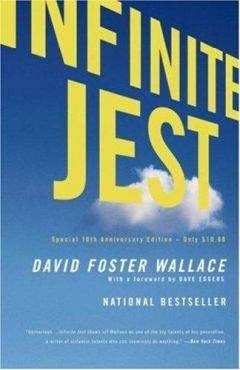
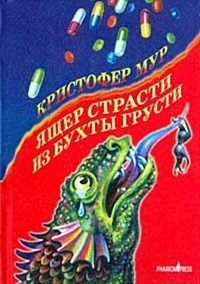

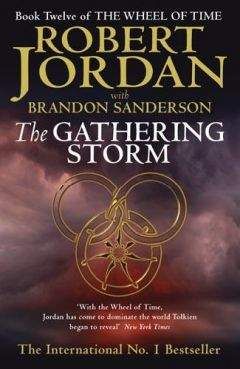
![Rick Page - Make Winning a Habit [с таблицами]](/uploads/posts/books/no-image.jpg)



